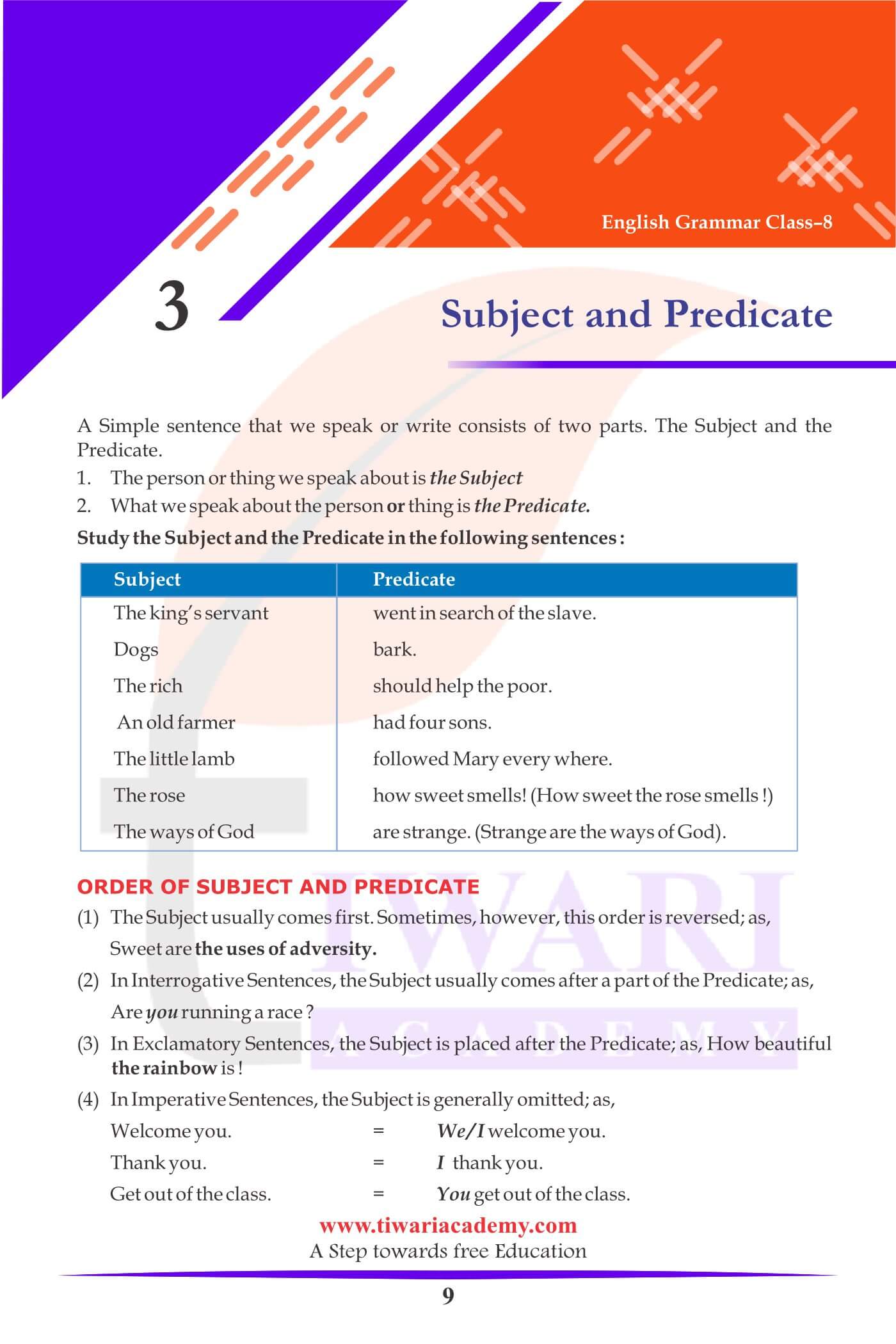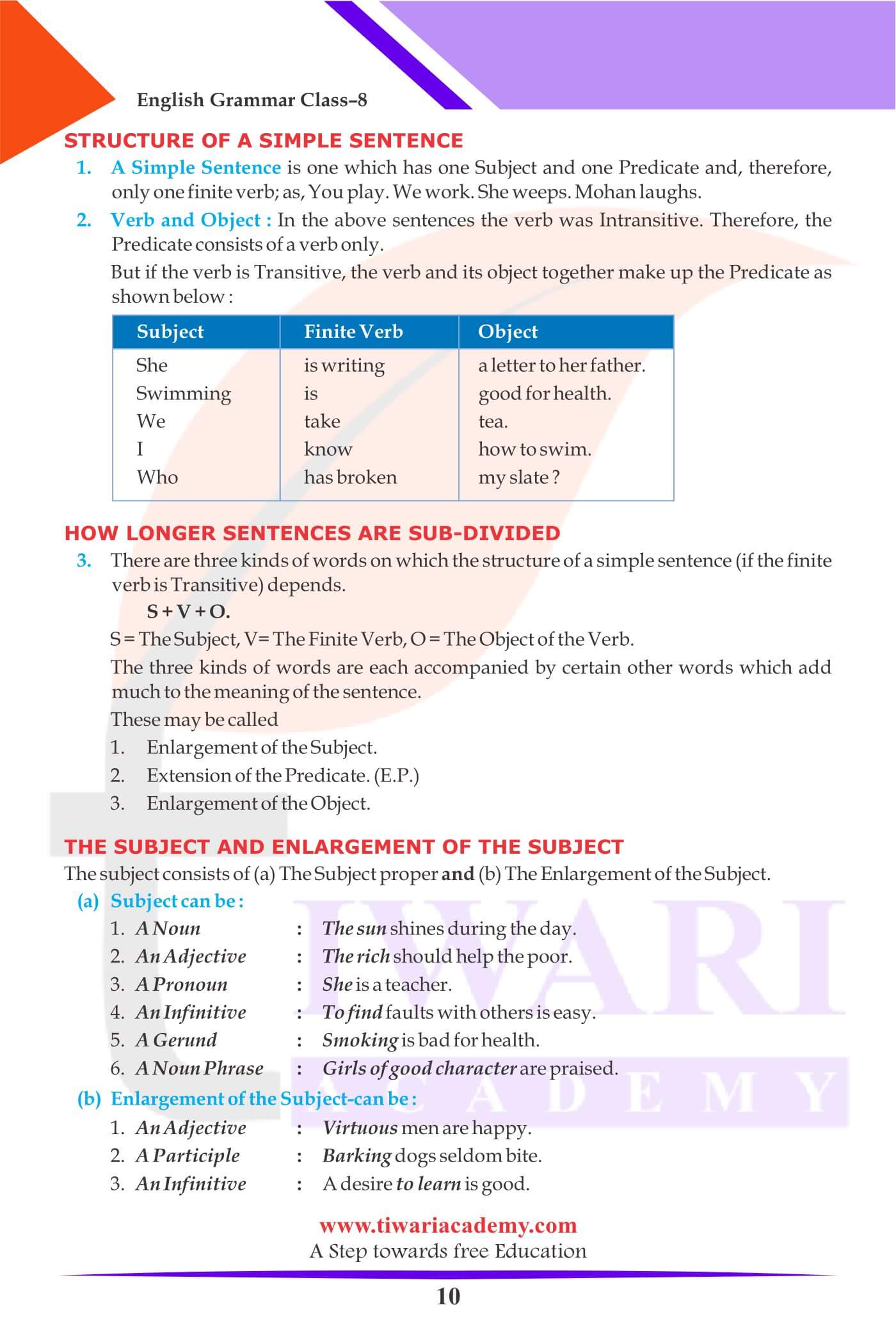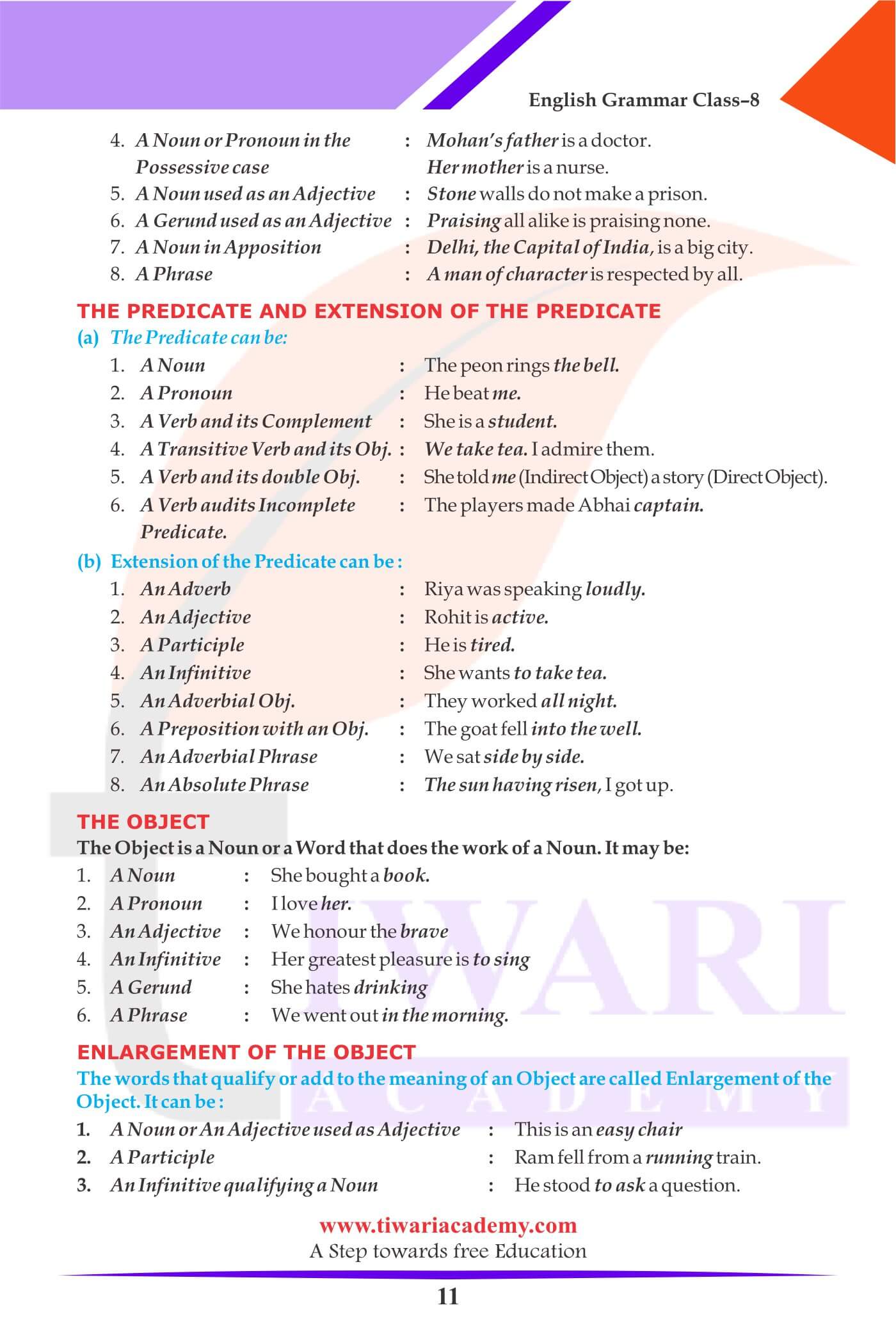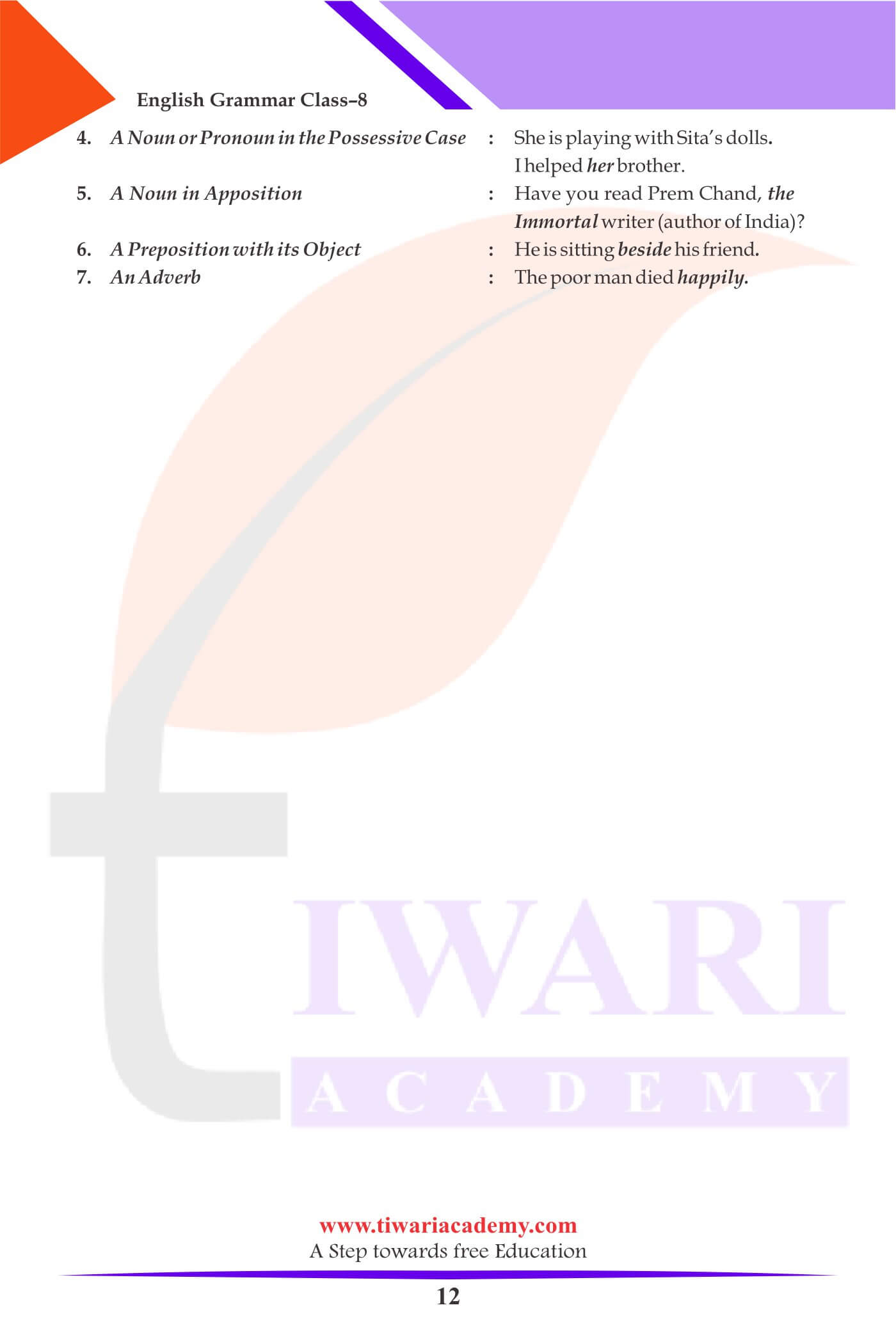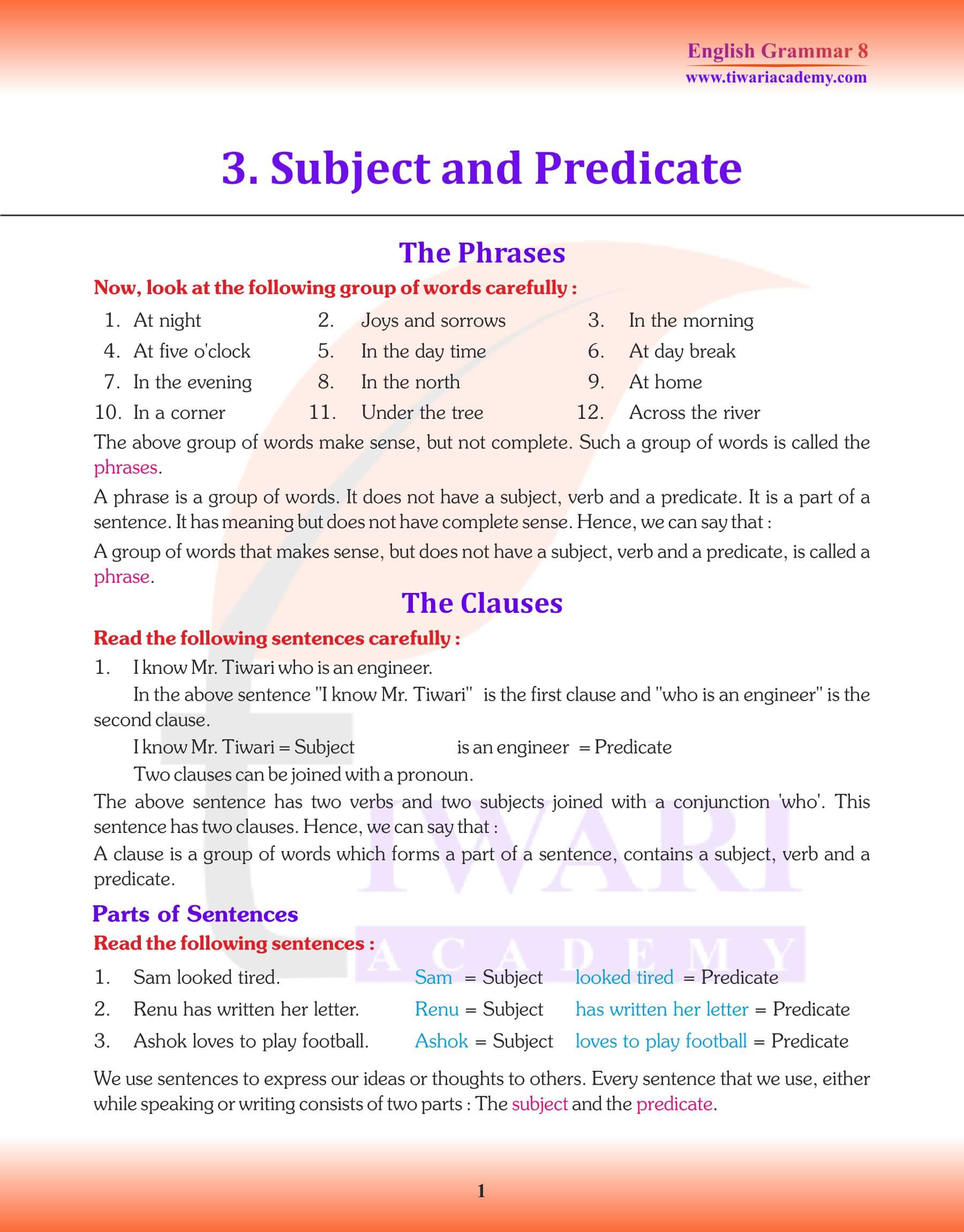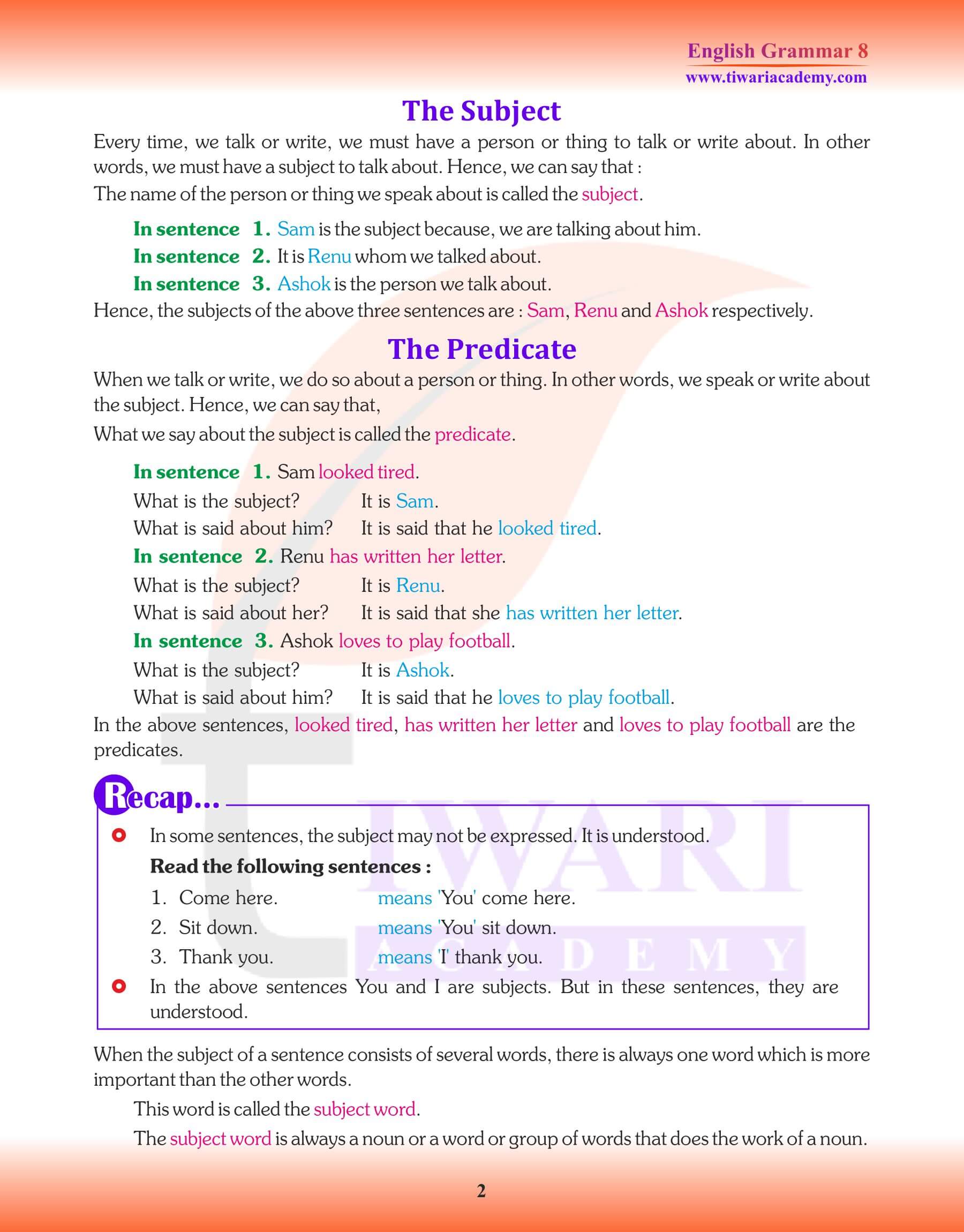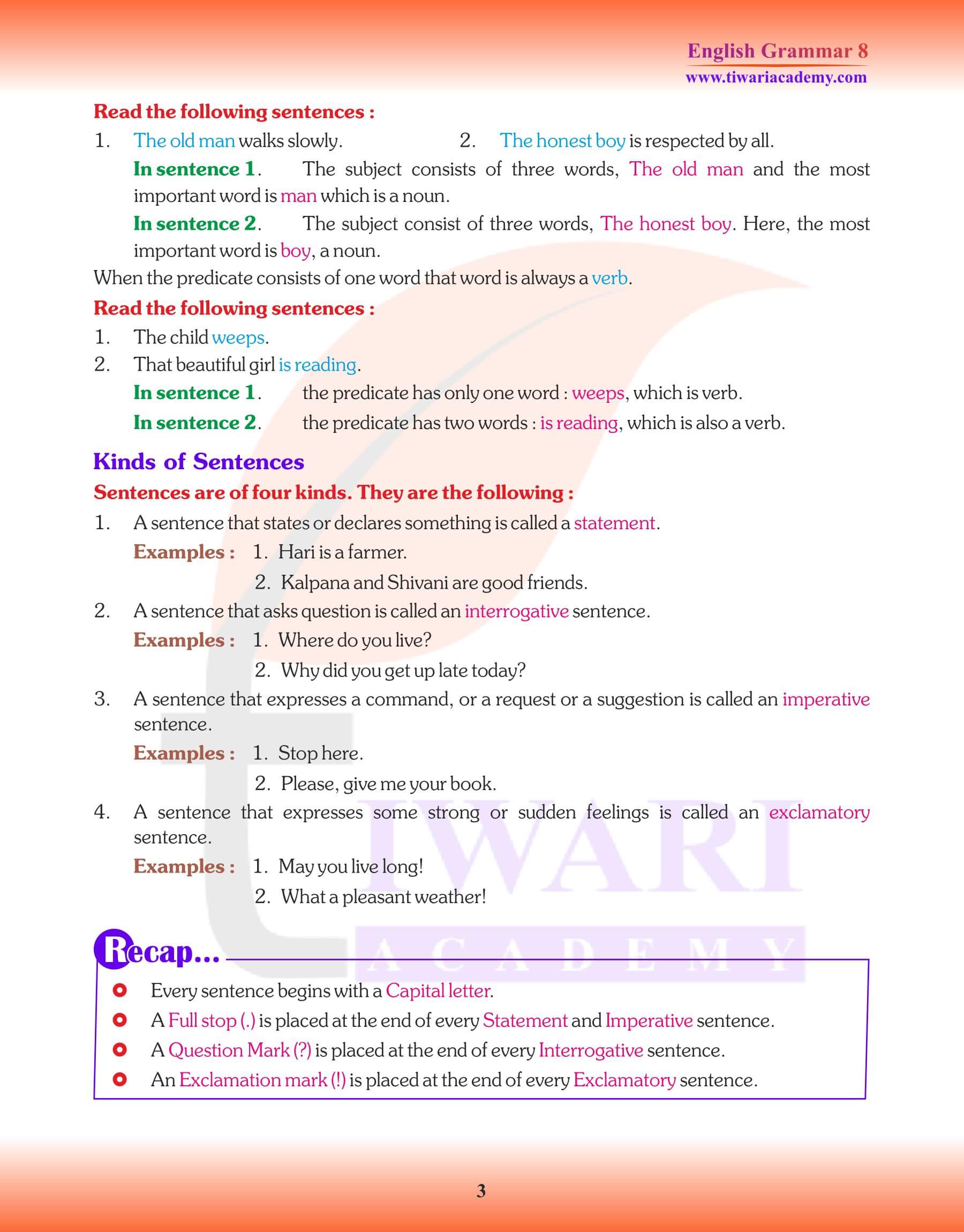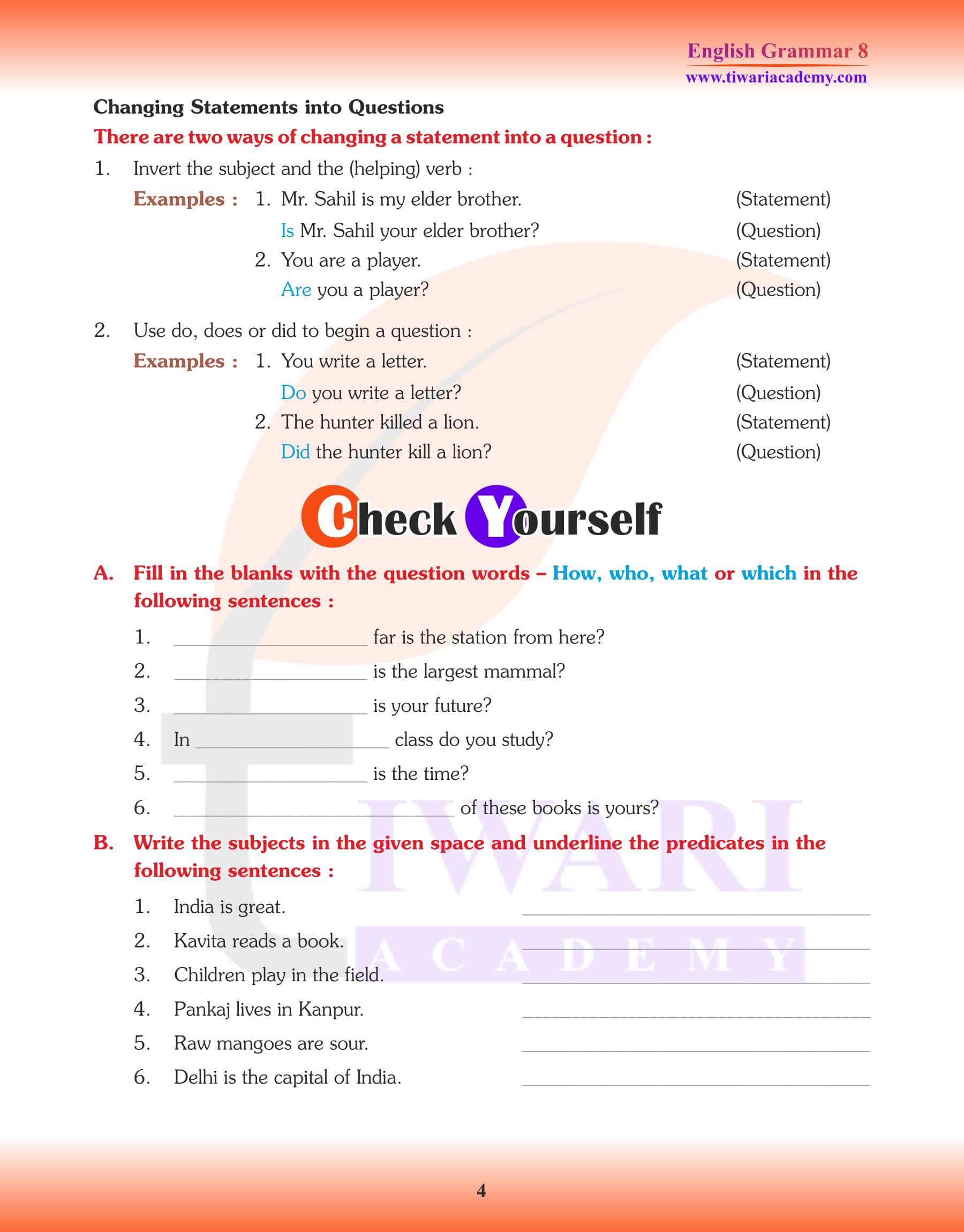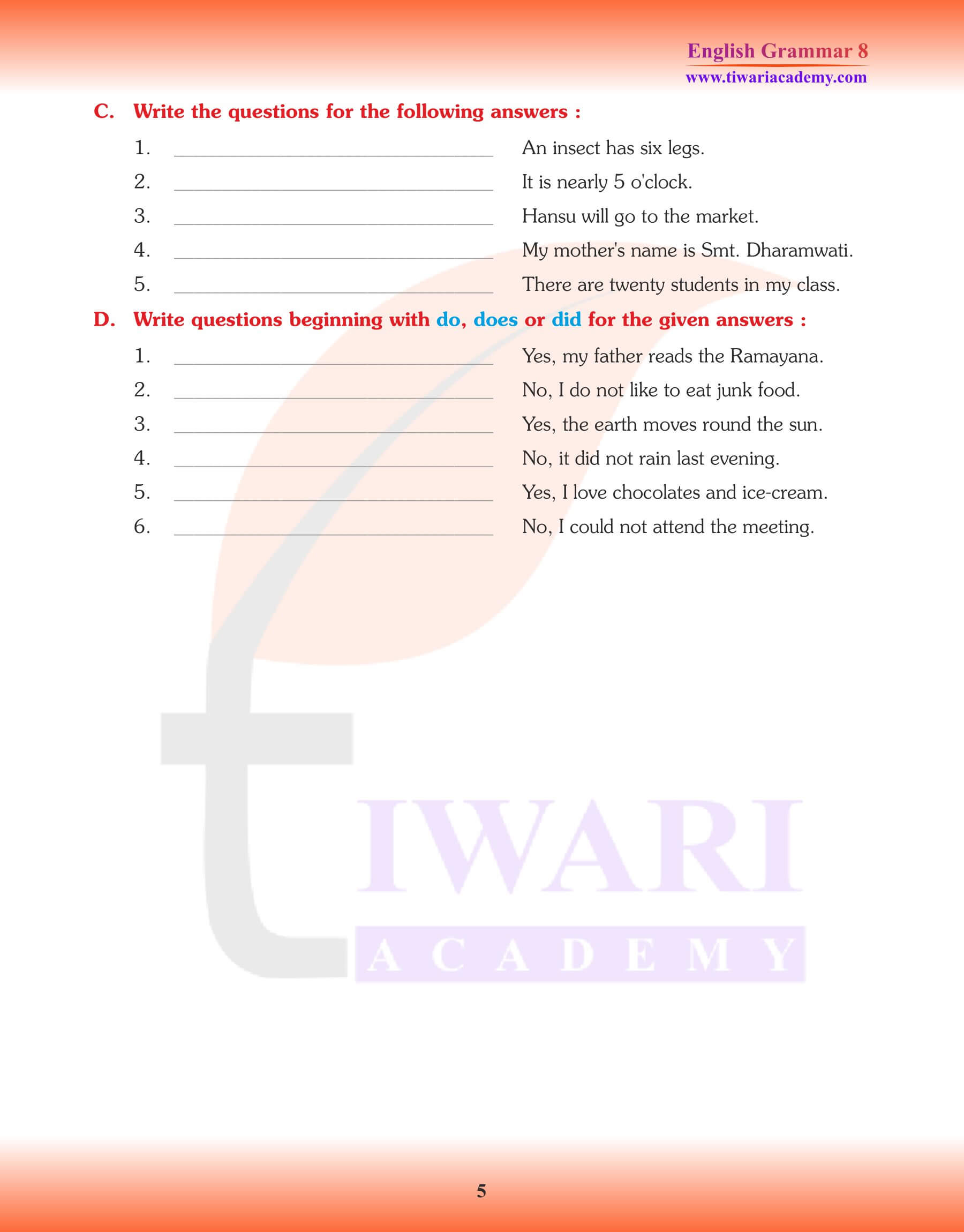Class 8 English Grammar Chapter 3 Subject and Predicate. A Simple sentence that we speak or write consists of two parts. The Subject and the Predicate. The person or thing we speak about is the Subject and what we speak about the person or thing is the Predicate. Here we will learn about order of subject and pradicate with examples and explanation.
Class 8 English Grammar takes students on an enlightening journey through its captivating chapters. Among them, Chapter 3 stands out as it demystifies the core components of sentence structure: ‘Subject and Predicate.’ This chapter forms the bedrock of understanding how sentences are framed, ensuring students develop a keen eye for English language nuances.
At the heart of every simple sentence, whether spoken or written, lie two pivotal parts – the Subject and the Predicate. But what are these elements, and why are they so crucial? The Subject of a sentence is the central figure or entity about which the statement revolves. In essence, it’s the protagonist of our narrative, the topic of our conversation. On the other hand, the Predicate provides information, details, or actions related to that subject. It fills in the blanks, giving depth and meaning to the sentence.
| Class: 8 | English Grammar |
| Chapter: 3 | Subject and Predicate |
| Content: | Textbook and Revision Notes |
| Academic Session: | 2024-25 |
Study the Subject and the Predicate in the following sentences:
| Subject | Predicate |
|---|---|
| The king’s servant | went in search of the slave. |
| Dogs | bark. |
| The rich | should help the poor. |
| An old farmer | had four sons. |
To elucidate further, consider the dynamics of a conversation. When discussing a person or thing (the Subject), the subsequent information or action you attribute to them forms the Predicate. This relationship between the Subject and Predicate is symbiotic, with each part providing context and clarity to the other.
Class 8 English Grammar Chapter 3 Explanation
Throughout Chapter 3, students are equipped with a wealth of examples and in-depth explanations. Such illustrative guidance ensures that learners not only grasp the theoretical aspects but can also practically apply their knowledge. Renowned educational platforms, like Tiwari Academy, accentuate the importance of understanding ‘Subject and Predicate.’ They provide enriched resources, exercises, and NCERT Solutions tailored to this topic, thereby amplifying its significance.
Order Of Subject And Predicate
- The Subject usually comes first. Sometimes, however, this order is reversed, as, Sweet are the uses of adversity.
- In Interrogative Sentences, the Subject usually comes after a part of the Predicate as,
Are you running a race? - In Exclamatory Sentences, the Subject is placed after the Predicate; as,
How beautiful the rainbow is! - In Imperative Sentences, the Subject is generally omitted, as,
Welcome you. = We / I welcome you.
Structure of A Simple Sentence
1. A Simple Sentence is one which has one Subject and one Predicate and, therefore, only one finite verb, as,
(a) You play.
(b) We work.
2. Verb and Object: In the above sentences the verb was Intransitive. Therefore, the Predicate consists of a verb only.
But if the verb is Transitive, the verb and its object together make up the Predicate as shown below:
| Subject | Finite Verb | Object |
|---|---|---|
| She | is writing | a letter to her father. |
| Swimming | is | good for health. |
| We | take | tea. |
| Who | has broken | my slate? |
In conclusion, ‘Subject and Predicate’ isn’t just a chapter; it’s a gateway to crafting and understanding well-structured sentences. As students of Class 8 navigate this critical terrain, they lay a robust foundation for their future linguistic endeavors, ensuring they become adept communicators in the world of the English language.
Longer Sentences Are Sub-Divided
There are three kinds of words on which the structure of a simple sentence (if the finite verb is Transitive) depends.
The three kinds of words are each accompanied by certain other words which add much to the meaning of the sentence.
These may be called
- 1. Enlargement of the Subject.
- 2. Extension of the Predicate. (E.P.)
- 3. Enlargement of the Object.
The Subject and Enlargement of The Subject
The subject consists of a) The Subject proper and (b) The Enlargement of the Subject.
(a) Subject can be:
1. A Noun: The sun shines during the day.
2. An Adjective: The rich should help the poor.
3. A Pronoun: She is a teacher.
4. An Infinitive: To find faults with others is easy.
5. A Gerund: Smoking is bad for health.
6. A Noun Phrase: Girls of good character are praised.
(b) Enlargement of the Subject can be:
1. An Adjective: Virtuous men are happy.
2. A Participle: Barking dogs seldom bite.
3. An Infinitive: A desire to learn is good.
4. A Noun or Pronoun in the: Mohan’s father is a doctor. Possessive case Her mother is a nurse.
5. A Noun used as an Adjective: Stone walls do not make a prison.
6. A Gerund used as an Adjective: Praising all alike is praising none.
7. A Noun in Apposition: Delhi, the Capital of India, is a big city.
8. A Phrase: A man of character is respected by all.
The Predicate and Extension of The Predicate:
(a) The Predicate can be:
1. A Noun: The peon rings the bell.
2. A Pronoun: He beat me.
3. A Verb and its Complement: She is a student.
4. A Transitive Verb and its Obj.: We take tea. I admire them.
5. A Verb and its double Obj.: She told me (Indirect Object) a story (Direct Object).
6. A Verb audits Incomplete Predicate.: The players made Abhai captain.
(b) Extension of the Predicate can be:
1. An Adverb: Riya was speaking loudly.
2. An Adjective: Rohit is active.
3. A Participle: He is tired.
4. An Infinitive: She wants to take tea.
5. An Adverbial Obj.: They worked all night.
6. A Preposition with an Obj.: The goat fell into the well.
7. An Adverbial Phrase: We sat side by side.
8. An Absolute Phrase: The sun having risen, I got up
Enlargement of The Object
The words that qualify or add to the meaning of an Object are called Enlargement of the Object. It can be:
1. A Noun or An Adjective used as Adjective: This is an easy chair.
2. A Participle: Ram fell from a running train.
3. An Infinitive qualifying a Noun: He stood to ask a question.
A Noun or Pronoun in the Possessive Case: She is playing with Sita’s dolls. I helped her brother.
A Noun in Apposition: Have you read Prem Chand, the Immortal writer (author of India)?
A Preposition with its Object: He is sitting beside his friend.
An Adverb: The poor man died happily.
